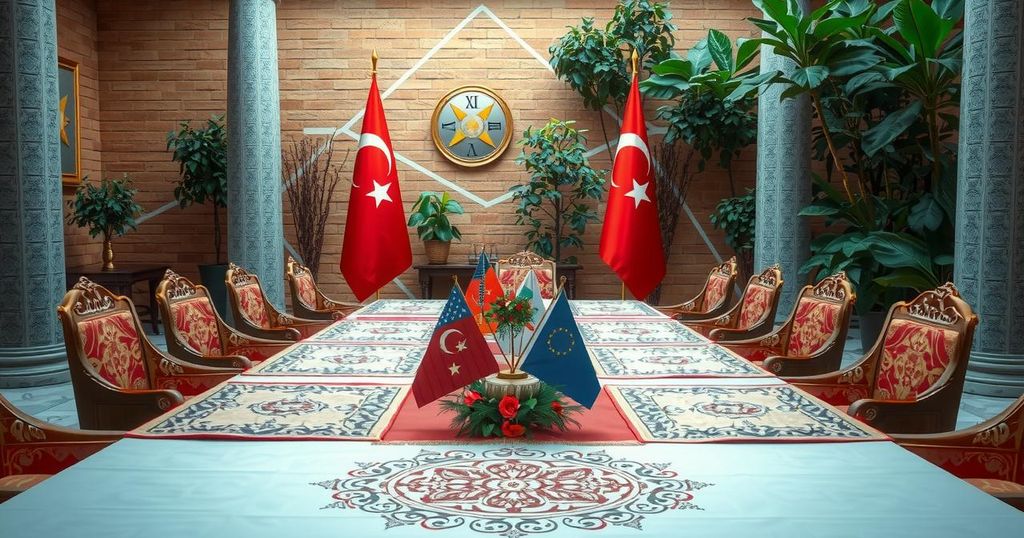Challenges Mount in Russia-Ukraine Peace Talks Amid Diplomatic Efforts

Direct peace talks between Russia and Ukraine are facing major difficulties with reduced participation as American negotiators arrive in Turkey to initiate discussions. Trump’s earlier ceasefire proposal remains unfulfilled, and skepticism lingers regarding Putin’s desire for peace. The Vatican offers mediation support, highlighting the international backing for resolution. Upcoming meetings might provide some clarity, but uncertainty remains high.
Efforts to spark direct peace talks between Russia and Ukraine are in a bit of a pickle, mainly due to some hiccups as an American delegation kicks off negotiations in Turkey. The plan was for top brass from both nations, and maybe even President Donald Trump, to jump in the discussions. Unfortunately, those aspirations are being reined in quite a bit.
Secretary of State Marco Rubio is at the helm along with Special Envoy Steve Witkoff, leading the U.S. team in Turkey where delegates from both sides assembled to kickstart peace talks. Earlier this year, a 30-day ceasefire suggested by Trump was reluctantly accepted by Ukraine, but that proposal fizzled out quickly. Meanwhile, European allies made their way to Ukraine last weekend to reignite the ceasefire discussions.
In a twist, Russian President Vladimir Putin called for direct talks in Turkey, while Ukrainian counterpart President Volodymyr Zelenskyy has put the ball in Putin’s court for a face-to-face. Trump, who seems to lean toward these direct talks rather than a ceasefire, is saying he would show up in Turkey if Putin was game. Yet, Putin has not yet nailed down his position, which leaves everything up in the air.
Rubio made the U.S. stance clear, saying “The president of the United States has been abundantly clear he wants the war to end. He’s open to virtually any mechanism that gets us to a just, enduring and lasting peace.” Meanwhile, Trump has opted to continue with his planned trip to the Middle East, touching down in the United Arab Emirates, but did leave the door open to traveling to Turkey if circumstances align.
While these U.S.-led initiatives stumble along, Trump’s skepticism about Putin’s actual intent to bring the war to a close is evident. On a broader front, Pope Leo XIV has also stepped in to help, offering support to these peace talks as part of a broader effort. Continuing the approach initiated by his predecessor, Pope Francis, Leo affirmed the Vatican’s commitment to facilitating negotiations and easing tensions.
“The Holy See is always ready to help bring enemies together, face-to-face, to talk to one another,” Pope Leo stated on Wednesday. He emphasized the hope for people everywhere to regain dignity through peace. Zelenskyy is expected to meet Turkey’s president on Thursday during a NATO summit, which might also lead to some progress on the discussions.
In summary, the direct peace talks between Russia and Ukraine are facing significant challenges as leaders and diplomats grapple with a lack of commitment from key figures. The involvement of the U.S. and the Vatican suggests broad international concern for resolving the conflict, but skepticism remains about Putin’s willingness to provide a real resolution. With upcoming meetings on the horizon, there’s a glimmer of hope for progress, but uncertainty still clouds the situation.
Original Source: www.kcra.com







